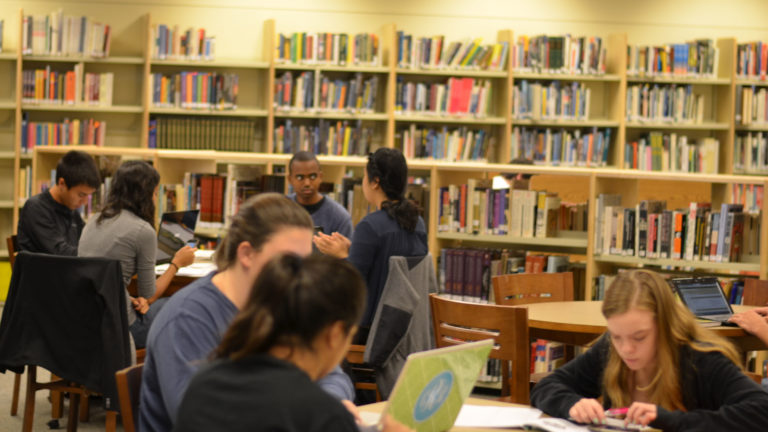It’s the end of the school year, and I’ll bet many teachers, and kids, are feeling a little ‘burnt out’. But real professional burn out is no joke.
When I was in grad school for my special education credential, they warned us all, “the burn out rate for special education teachers is 5 years”. In just 5 years, most special education teachers move to other careers or leave the profession. In some states, they have less than a 10% after 1 year!! At the time, as a grad student and instructional aide, I was thinking to myself, ‘No way, that’s so short, I’ll make it to retirement, I can do better than those people‘.
Man, was I naive. But not for the reasons you may think. I am still employed as a SpEd teacher. I am not planning on leaving anytime soon, and I am confident (or at least hoping) I will make it to 5 years. But I can see where these stats come from! Burn out, or attrition in the fancy technical term, has been a problem for special education teachers ever since special education moved to the mainstream, and for many reasons.
First, you have life getting in the way. Most teachers coming out of school (not all, I am generalizing here) are around the age that they begin starting families, or already have them. I know that J and I have discussed me staying home for a year or two when we have children, and I’m sure other teachers have had familial obligations take them away from the job.
Another reason I have personally seen is lack of training. Many special educators do not realize the extent of their duties (diapering a 16 year old, dealing with severe aggressive behaviors, etc) before they come on the job. Most teacher training programs have the students complete limited observations or ‘student teaching’, but each special education room is SO different. An ED classroom is miles apart from an Autism classroom. An academic special day class is completely different than a functional one. And what they do in a nonpublic school is considered crazy from a public school perspective. The truth is that you are never truly prepared for a new job in special education.
Parent and Social support is often another reason teachers may leave. Parent support can range (as in any classroom) from helicopter parent to absentee parent, however when the child has special needs, the communication need rises and conflicts almost inevitably arise. Parents need to be present for meetings, behavior support at home and at school, sign medical forms, deal with special diets, etc. If parents and teachers are not on the same page, it can be some of the most stressful days of your career. In general, the public tends to undermine teachers. “Oh you get summer off, you’re soooo lucky” “You get off at 3, your job must be so easy!” Personally, I don’t know any teacher who has had a whole summer off, or leaves the school at 3. The lack of support and people undermining what teachers do can be really annoying and degrading.
(Having a school board vote on whether I get a raise or not after spending 0 days in my classroom, UNFAIR, but that’s a conversation for another day).
But speaking of Pay Scales- Program supervisors, program directors, behavior analysts, speech therapists, etc., all often make more than special education teachers. So why wouldn’t I think about advancing my career (and my payday) but getting another certificate or degree and moving up and out of the classroom? When there are other career options in your field, it is natural for teachers to look to other jobs.
Dealing with other staff members is another way special educators can have added stress in their lives. There is no college course in how to manage your aides/paraprofessionals, yet that is so much of your job. In some schools, you are their supervisor, trainer, evaluator, or scheduler. Although you have this role, when you get too many adults in the room, there will inevitably be issues (especially as a young teacher with older paraprofessionals). As a Special Educator, you are also responsible for coordinating with OT’s, PT’s, Speech Therapists, Administrators, Principals, and General Education teachers! Getting reports back, student’s scheduled, IEP’s scheduled, and paperwork from everyone on a child’s team can be time consuming and frankly ridiculous.
One of the biggest issues I have heard of in other states is teacher evaluations. I have been fortunate enough to work in CA where my performance is not judged by student test scores and men in suits at the capitol. However often teachers in other states’ jobs are on the line based on state test scores that do not take into account student disabilities or IEP goal progress. Talk about stressful!
Burn out does not only affect the teacher; when a teacher is burnt out, the students can tell. It is stressful for the students to have a teacher who is on their ‘last hair’. They can tell you don’t want to be there and they in turn, do not want to be there. It puts everyone in a foul mood.
With all of these things pitted against you, what are some tips to keep yourself stress free and happy in your job?
Here are some of my personal suggestions:
- Take a ‘you day’. If possible with your budget and sick days, take a random Wednesday, get yourself pampered, run errands, lay by the pool. Do you for 7 hours! Although we get weekends off, they are often full of family, planned events, sports, and commitments. Take a day and do everything you need or nothing at all.
- Focus on why you are in this job! Take a minute to write out why you chose this job and why it makes you happy. Teachers need to have a deep love for what they do (because it obviously isn’t for the money!).
- Vent! Have a glass of wine or beer and vent to a friend outside of school for an hour. Venting for me is a huge stress reliever. Just getting everything I am feeling out in the open and off my chest. But make sure you are not causing any gossip or problems by doing this!
- Exercise and eat right- but have the ice cream too. The oldest trick in the book. Treat your body right and you will have one less thing to worry about! Plus exercise gives you endorphins, and endorphins make you happy!
- Voice your concerns. If you have serious issues that are making you contemplate why you are here at all, then you are not being properly supported. Let your supervisor or admin know your concerns, they might be able to help in ways you hadn’t considered.
- Develop realistic expectations- special educators are trained to find problems and help fix them. But you can’t fix everything! Realize this and let certain things go.
- Fake it til you make it. At any job you’ll ever have, they say ‘leave your home life at home’ or ‘leave your emotions at the door’ and it’s incredibly important. Often if you just smile through the day, you’ll come home feeling a lot better than if you kept that grumpy face on!
Now all this being said, if it really isn’t the job for you, QUIT! You are not doing yourself or your students any favors by being in a job you hate. It’s more important to be happy! But if it could possibly be just the ‘end of school year blues’ try to de-stress and smile. It’s almost summer!
(Note: I love my job and my kids and hope to make it to retirement!)
Sources:
http://www.friendshipcircle.org/blog/2012/02/01/the-top-10-challenges-of-special-education-teachers/
http://www.bu.edu/today/2013/what-will-it-take-to-keep-special-ed-teachers/
http://www.ericdigests.org/1998-2/coping.htm



 (Crazy right?)
(Crazy right?)
